When Lieutenant General Waidi Shaibu was announced as the 25th Chief of Army Staff, COAS, it was received with applause because when he speaks to troops, they listen, not because of his position, but because they know he has lived every word in the battlefield. Once wounded in action, the decorated commander and seasoned strategist brings a blend of operational experience, academic rigour, and unyielding commitment to Nigeria’s sovereignty. Chiemelie Ezeobi writes that his appointment signals a defining phase in the Nigerian Army’s transformation towards enhanced combat and operational readiness, synergy, institutional reform and deepened intelligence-led warfare
Leadership in uniform is often spoken about in lofty terms like duty, courage, sacrifice, but rarely do these words find their fullest expression in one individual.
In the Nigerian Army today, that embodiment is Lieutenant General Waidi Shaibu, Nigerian Army Medal, a soldier whose authority is rooted not in rhetoric or rank, but in lived experience under enemy target and fire.
Forged in the Field
Long before his appointment as the 25th Chief of Army Staff, Waidi Shaibu had already built a reputation for courage in the nation’s toughest theatres of war.
From the hostile edges of Lake Chad to the dense, dangerous enclaves of Sambisa, he has led troops in environments where insurgency is entrenched, terrain is punishing, and decisions must be made with a clarity that only comes from experience.
His encounters with Boko Haram and ISWAP militants are not second-hand accounts. They are lived realities, marked by nights in the open, days of pursuit, and situations where the difference between success and tragedy rested on quick thinking and steady command.
When he speaks to troops, they listen, not because of his position, but because they know he has lived every word and that for Lieutenant General Shaibu, the frontlines have never been optional.
It is difficult to understand the man without referring to the picture used in this story. In this image, captured deep inside the Sambisa Forest during the Tura Takai Bango Operations, General Shaibu stands shoulder-to-shoulder with Major General Abdul Khalifa, who is now retired.
Even with the dusty background and the bush around them alive with tension, both men appear steady, focused, unshaken and fully present, which shows more than an operational moment but represents the kind of leadership that refuses to observe battles from afar.
The Wulgo Story: Where Grit Became Identity
How bravery didn’t start today. Looking back at his years as a colonel, the mission that many soldiers still recount with pride is the daring assault on Wulgo, an operation that remains one of the most demanding episodes of his early career.
Then a Colonel, Shaibu spent days navigating the treacherous waterways of Lake Chad, moving through an environment where danger hid in the water as much as on land. At one point, he was wounded in action. Most would have withdrawn. He pressed on.
The scar from that mission is more than a physical reminder. Within Army circles, it has become a marker of loyalty, to his troops, to the mission, and to Nigeria itself. Those who know him well say the mark on his body reflects the same mark he carries within: a refusal to abandon duty, no matter the cost.
A Nation’s Pride in a Battle-tested General
For soldiers in the trenches, leadership is never theoretical. They trust those who have stood with them in moments where survival is uncertain. This is the foundation of Shaibu’s bond with the rank-and-file.
He understands fear because he has felt it; he understands fatigue because he has marched under it; and he understands faith in the mission because he has had to rely on it in the deadliest moments.
This is why his elevation to Chief of Army Staff was greeted with unusual enthusiasm among many who have fought in Nigeria’s toughest battles. They believe they have a commander who sees them, not as numbers or units, but as men whose lives he has shared responsibility for long before he became the nation’s top soldier.
Thus, at a time when Nigeria confronts complex security pressures, Shaibu represents a reassurance that leadership at the top is not experimental as he has lived through the realities of modern insurgency, confronted the evolving tactics of ISWAP and Boko Haram, and walked terrains that have broken lesser men. Nigeria’s confidence in him is not abstract. It is anchored in what he has already done.
Today, as COAS, Lt. Gen. Shaibu’s role extends far beyond battlefields. Those who have followed his trajectory describe his leadership as methodical, disciplined, and unyielding in matters of national security.
Yet even in this era of strategic responsibility, the soldier in him remains unmistakable. It is visible in the way he interacts with troops, the way he speaks about the mission, and the way he continues to draw from the experiences that shaped him.
Why His Story Matters Now
Nigeria sits at a crossroads where the difference between insecurity and stability may well depend on the quality of leadership at the highest levels of the Armed Forces. At such a moment, a battle-hardened commander with scars earned in defence of the country becomes more than an appointment but a symbol of what must not waver.
This is because Lt. Gen. Shaibu represents a leader forged by combat, a strategist shaped by study and a soldier bound by loyalty to the national flag.
Essentially, his story is not just his own but that of thousands of men who have stood beside him, followed him, and been inspired by him. It is also the story of a country seeking reassurance in a time of uncertainty and finding it in one of the most seasoned officers of his generation.
Career Trajectory Born on 18 December 1971 in Olamaboro Local Government Area of Kogi State, General Shaibu was admitted into the Nigerian Defence Academy (NDA) in 1989 as part of the 41 Regular Course and was commissioned into the Nigerian Army Armoured Corps in 1994.
A mechanical engineer by training, he holds a Bachelor’s Degree from the NDA and multiple advanced degrees, including a Master’s in Strategic Studies (University of Ibadan), a Master’s in Security and Strategic Studies (National Defence University, Washington D.C.), and a Master’s in Public Administration (University of Calabar).
His career trajectory reflects both grit and intellect. He has commanded formations across challenging theatres of operation, from Borno to Yobe, including his tenure as General Officer Commanding (GOC) 7 Division and Commander Sector 1, Operation HADIN KAI, Maiduguri. His previous appointments include Chief of Training (Army Headquarters), Brigade Commander (21 Special Armoured Brigade, Bama), and Chief Instructor, Nigerian Army Armour School.
General Shaibu’s leadership has been tested in major operations such as HARMONY, LAFIYA DOLE, HADIN KAI, and DESERT SANITY, earning him the Purple Heart Medal for gallantry. He is also a graduate of the Harvard Kennedy School of Government and has served on peacekeeping missions in Liberia and Sudan.
A Fellow of the Defence College (fdc) and recipient of numerous decorations, including the Distinguished Service Star (DSS) and Meritorious Service Star (MSS), Shaibu is expected to consolidate reforms in the Army, enhance intelligence-led warfare, and deepen synergy in joint operations.
Task Defining-moment
Undoubtedly, Lt. Gen. Shaibu’s journey stands as a reminder that the strength of an army is often defined by the character of the man who leads it. His scars, his battlefield experience, and his unwavering commitment to the Nigerian flag form a legacy that resonates far beyond the trenches of Sambisa or the waters of Lake Chad.
At a time when the nation confronts evolving threats, his steady presence offers reassurance that its security is entrusted to a commander who has lived every danger his troops now face.
He is expected to drive reforms that strengthen the Army’s operational tempo, deepen intelligence-led warfare, and enhance synergy across joint forces. The same determination he brought to Wulgo and Sambisa is now being channelled into institutional transformation, training, professionalism, and readiness.
As Nigeria looks ahead, the task before him is both immense and defining. Yet, if his past is any indication, he is a leader prepared for the weight of the moment, one shaped by fire, guided by discipline, and grounded in service.
His story is that of a soldier who earned his place at the helm, not through declarations, but through sacrifice. And as the nation navigates its security challenges, General Shaibu’s leadership stands as a testament to resilience, duty, and the enduring spirit of those who choose to serve in the line of fire.



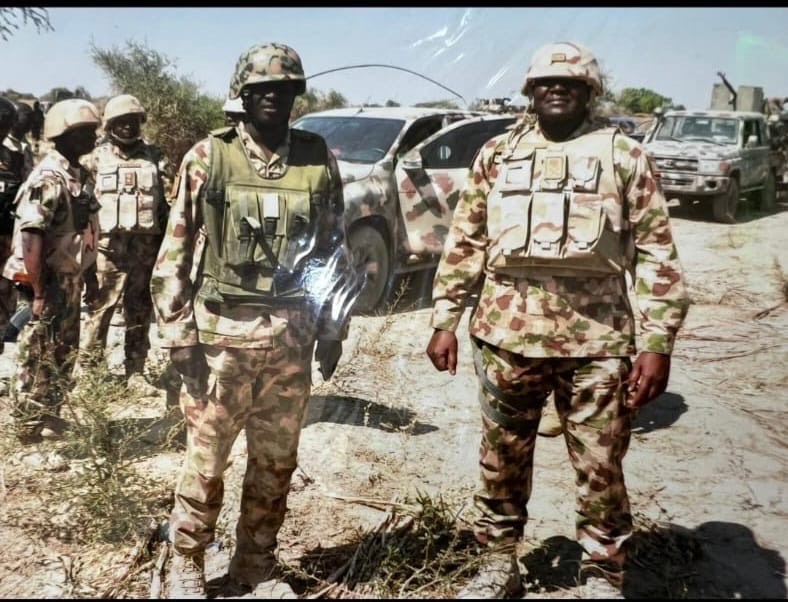
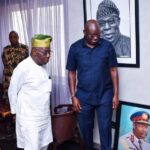


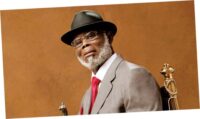
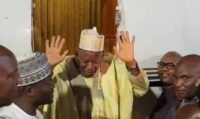
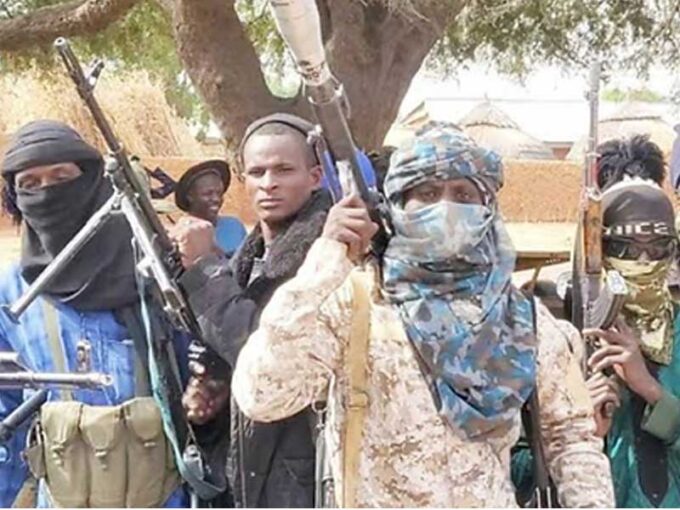
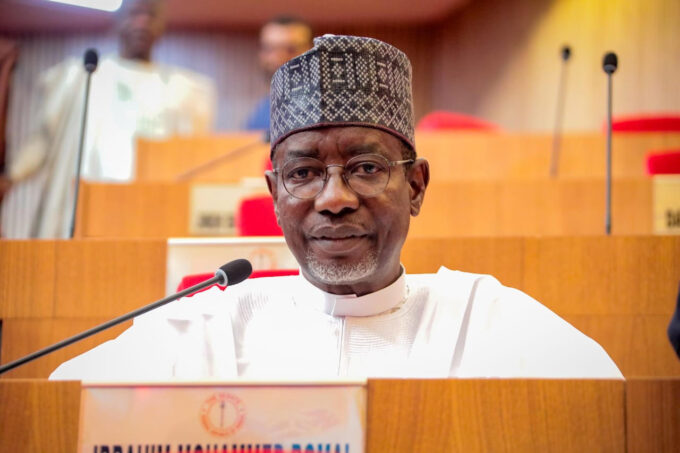





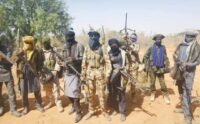

Leave a comment